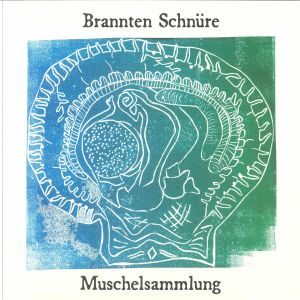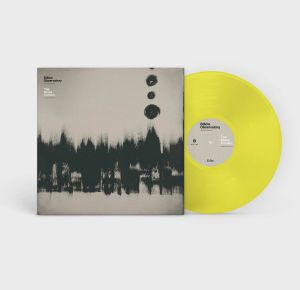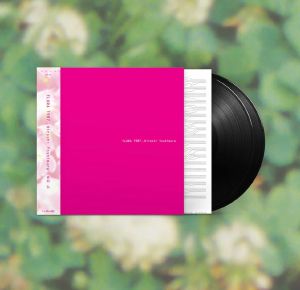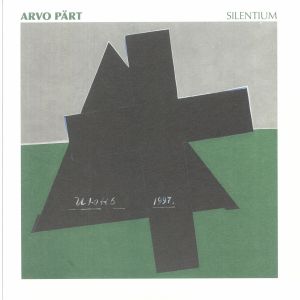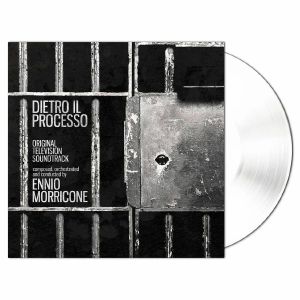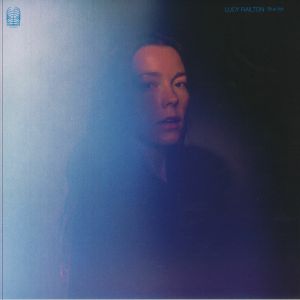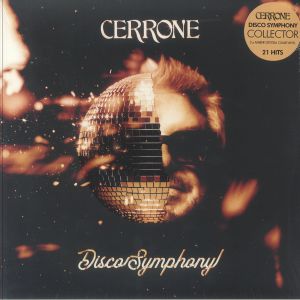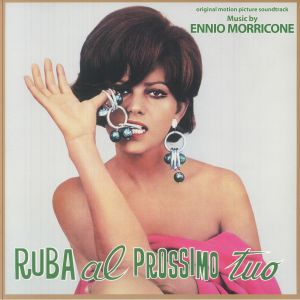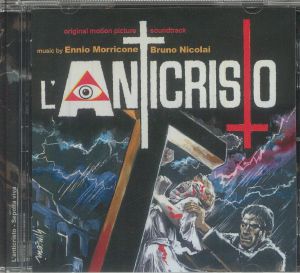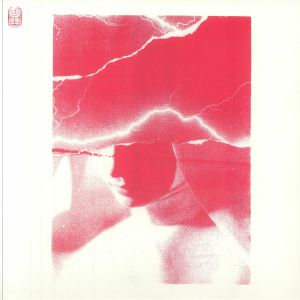Filter
Genre
Type
Music
Equipment
Brand
Artist
Release Title
Price
Tags
Classical charts
Bestselling Classical vinylReview: Stepping into the world of Hiroshi Yoshimura is like entering a tranquil garden, where every sound is a carefully cultivated element of the landscape. His music, originating in the 1980s, blurs the lines between ambient soundscapes and composed pieces, creating an immersive experience that evokes the serenity of the natural world. 'Over The Clover' whispers with the gentle rustling of leaves, while 'Flora' blossoms with delicate melodies. Yoshimura captures the essence of specific natural elements, from the unfurling of a morning glory in 'Asagao' to the subtle shifts in air pressure in 'Wind Echo'. He even finds music in the unexpected, as 'Maple Syrup Factory' introduces a surprising sweetness to the sonic landscape. But Yoshimura's work is not simply about recreating the sounds of nature. The Japanese musician and composer encourages a deeper listening experience, where subtle details and intricate textures emerge with each listen, definitely music that rewards close attention.
… Read moreGespielt von: Juno Recommends Leftfield, Juno Recommends Ambient/Drone
in stock ₺825,77
Review: Kali Malone's The Sacrificial Code stands as a defining work of 21st Century minimalism, shaped by years of intensive study. Originally released in 2019, the album emerged from her time at Stockholm's Royal College of Music, where she explored sound, space, and alternate tuning systems under the guidance of organ tuner Jan Borjeson. Stripping composition down to its starkest form, she embraced canons and slow-moving harmonic shifts, slowly but surely stepping into a sound emphasising monumentality. Now, six years later, The Sacrificial Code is reissued via Ideologic Organ, featuring a new 2023 recording of the title track on a 16th-century organ. Malone's self-taught recording techniques bring out the instrument's spirant resonance, creating a time-dilating sound. Less mournful, more tranquil, the new version mirrors the concurrent transformations of music and listeners in step, over time.
… Read moreGespielt von: Juno Recommends Leftfield, Juno Recommends Ambient/Drone
in stock ₺1.475,09
Muschelsammlung (reissue) (LP + insert limited to 250 copies)
Cat: WAHN 01. Rel: 07 Apr 25
Review: An experimental dark folk group from Wurzburg, Germany, Brannten Schnure's 2017 release gets a well-deserved reissue, retaining its distinctive experimental dark folk essence. The duo, Christian Schoppik and Katie Rich, crafts immersive soundscapes where traditional instruments, eerie vocals, and looped, crackling recordings converge. Tracks like 'Das Jungfrauliche Ohr' and 'Die Milchlinse' set the tone, blending atonal elements with haunting, dreamlike atmospheres. 'Die Geschandete Venus' takes a darker, more melancholic turn, with its slow, creeping build. On the B-side, tracks such as 'Der Kleinere Mit Gefleckten Linien Umgebene Papillonsflugel' offer intricate compositions that evoke a surreal, almost cinematic quality. With influences from Nico and Novy Svet, their music pours out and creates a world that's both unsettling and strangely beautiful.
… Read more in stock ₺990,61
The Glass Curtain (limited transparent yellow vinyl LP)
Cat: FLT 110LPC1. Rel: 24 Apr 25
Review: Billow Observatory returns to the fully ambient realms of their 2012 debut with a deeply introspective, percussion-free release that drifts through spectral soundscapes. Created by Jason Kolb and Jonas Munk, the duo's transatlantic collaboration has matured across four full-length albums marked by precision and emotional depth. Here, abandoning traditional structure, the album instead looks to harness the power of chance and randomness with shimmering guitar textures that crackle and dissolve like dust in water. It evokes a world slightly out of sync that is brooding, haunting and beautifully immersive while underlining their place as masters of refined, atmospheric ambient music.
… Read moreGespielt von: Juno Recommends Leftfield, Juno Recommends Ambient/Drone
in stock ₺957,86
Drawn Into The Edge Effect (limited green vortex vinyl LP + insert + MP3 download code)
Cat: CIS 191LP. Rel: 03 Apr 25
Review: Andrea Cichecki - a German DJ, music producer and audio engineer based in Dresden - presents her debut LP for Castles In Space, building on an intense reflection on her past. Having been brought up on the precipice of countryside and woodland, Cichecki is a lifelong adherent to what she called the "edge effect", thriving on the boundaries of things both metaphorical and actual, rather than sticking within them. Bringing macro-cosmic scale to Moogish synthesis, each track weaves a personal story of an implicit, instrumental nature, unalloyed by words, and incorporates field recordings from the Ore Mountains and the wild, valleyed landscape of Saxon, Switzerland.
… Read more in stock ₺880,19
Crooked Wing (clear vinyl LP + poster + MP3 download code in spot-varnished foil-stamped sleeve)
Cat: WIGLP 553X. Rel: 22 May 25
Review: If Inside the Rose, the fourth album from These New Puritans, was a long-winded production process - spanning six years of work - but saw the Essex outfit return with immediate force, the follow up is much more of a slow-burner at the consumption end. It's a stranger, more experimental and, arguably, visionary example of what these guys do best. And it couldn't feel more engrossing. Deep, immersive, almost ceremonial, powerfully uplifting ('Bells' is particularly life-affirming stuff), it saturates you in gorgeous emotional indie-choral-chimes, and sucks you into these gripping narratives that fall somewhere between swooning electronic, drummy alternative rock and a place which is really only These New Puritans.
… Read more in stock ₺1.056,12
Review: Hiroshi Yoshimura is having a moment. Originally released in the 1980s, this collection of environmental music from the Japanese musician and composer offers a tranquil listening experience, Yoshimura painting sonic landscapes that evoke the subtle beauty of the natural world. 'Over The Clover' unfolds with the gentle sway of leaves, while 'Flora' captures the delicate essence of blossoming flowers. Each track is a miniature portrait of nature's intricacies, from the unfurling of morning glories in 'Asagao' to the whispering breeze of 'Wind Echo'. 'Maple Syrup Factory' adds a touch of unexpected sweetness, a subtle shift in the otherwise serene palette. But this is more than just pretty soundscapes. Yoshimura's music invites active listening, revealing intricate details that might be missed on a casual listen. It's music that rewards close attention while simultaneously blending into the background of everyday life.
… Read moreGespielt von: Juno Recommends Ambient/Drone
in stock ₺2.157,16
Nosferatu (Soundtrack) (limited gatefold oxblood red vinyl 2xLP + die-cut poster)
Cat: SBR 355LPC3. Rel: 21 Nov 24
Review: Robin Carolan's latest score for Robert Eggers' Nosferatu is a darkly atmospheric work that fuses gothic elements with a broad range of instruments and sounds. Following their successful collaboration on The Northman, Carolan once again teams up with Eggers to craft a haunting, meticulously composed score that complements the eerie 19th-century setting. British musician Daniel Pioro leads the orchestration, which features 60 string players, a full choir, horns, woodwinds, a harpist and two percussionists. Despite this grandeur, one of the trickiest pieces to perfect was the opening music box which really shows Carolan and Eggers' meticulous attention to detail. Carolan sought to avoid modern influences in the score while embracing contemporary instruments, a balance enhanced by Letty Stott's use of ancient horns and pipes. Carolan's inspirations were diverse, from Bartok and Coil to films like The Innocents and Eyes Wide Shut. He also drew from the Ukrainian film The Eve of Ivan Kupalo to shape the otherworldly tone of the score. Rather than focusing on horror cliches, Carolan emphasised the melancholic and tragic aspects of the story, adding a layer of warped romanticism. The result is an evocative soundtrack that, while perfectly aligned with the film, also stands as a powerful work of art on its own.
… Read more in stock ₺1.607,17
VARIOUS
World Of Warcraft: 20 Years Of Music Orchestral Concert ('seasons of azeroth' coloured vinyl 4xLP with obi-strip)
Cat: MOND 328A. Rel: 09 May 25
Review: Recorded live in Switzerland on September 27-28, 2024, this special concert celebrates 20 years of the instantly recogniseable game, with the iconic music performed by a sweeping 190-piece ensemble. The concert features compositions from various expansions, with a standout performance by the 21st Century Orchestra and three choirs: Tale of Fantasy, Ardito and Madrijazz Gospel. The music, orchestrated by William Liston and Penka Kouneva and conducted by Derek Duke, brings the beloved scores to life in a grand, emotionally charged presentation. From the iconic 'World of Warcraft Suite' to 'Burning Crusade: Beyond the Dark Portal' and the stirring 'Wrath of the Lich King: Echoes of Northern'. this collection captures the epic journey through Azeroth. With mastering by James Plotkin and stunning graphic design by Janie Peacock and Nolan Fleming, this release is a nostalgic dive into the past and a new way to experience the game's rich musical legacy.
… Read more in stock ₺4.017,39
Review: A series of vivid, nocturnal transmissions blending altered-state refinements and rich storytelling as Canadian composer and producer Coverdale merges synthesis with live instrumentation, creating a multi-dimensional sound that feels both intensely personal and universally resonant. Drawing on a wide range of influences, including 19th-century programmatic music - that's music with spoken narrative, like Provokiev's Peter & The Wolf - and mid-70s jazz, her compositions balance improvisation with deeply emotional content. Each track explores a range of textures, from the ethereal, soaring flights of 'Daze' to the grounded, material energy of 'Freedom.' The use of strings, woodwind, brass and modular synthesis intertwines with Coverdale's voice to create a language that feels alive and constantly evolving. Whether navigating the turbulent gales of 'Coming Around' or finding catharsis in the drummed sequences of 'Offload Flip,' the music speaks to the physicality of sound and the emotional charge it carries. The narrative arcs throughout, painting an intricate portrait of grief, dislocation, and the quest for self-connection, each track embodying a different facet of this deeply personal yet expansive journey.
… Read more in stock ₺1.001,71
Review: A decade on from its original release, this compilation remains a spellbinding window into the musical mind of one of modern music's most innovative figures. As comfortable behind a grand piano as a homemade synth, Frahm brings his taste for boundary-blurring to this curated journey. Consider this a love letter to his inspirations and a reflection of his multifaceted artistry. The compilation weaves classical greats, jazz legends, ambient pioneers and experimental mavericks into a singular, late-night odyssey. Vladimir Horowitz's crackling rendition of 'The Flight of the Bumblebee' connects Frahm's own virtuosic piano play to the classical canon, while Miles Davis' smoky 'Generique' and 'Concierto de Aranjuez (Adagio)' speak to the atmospheric jazz undercurrents that color much of his work. Nina Simone's aching rendition of 'Who Knows Where the Time Goes' carries the same stripped emotional core that Frahm achieves in his more minimalist moments. Elsewhere, the warmth of Dub Tractor's 'Cirkel' and the ghostly dub of Rhythm & Sound's 'Mango Drive' nod to his love of minimalism beyond genre. Boards of Canada's slow-burning 'In a Beautiful Place Out in the Country' is also featured, showing the esteem Frahm holds these newer tracks in, nestling among legendary musical acts of the past. From Colin Stetson's avant-garde saxophone to Bibio's lush textures, the compilation spans eras and aesthetics with cohesion and care. It's not just a mixtape - it's a tribute, a seriously rich tapestry of influences that shaped a singular voice.
… Read more in stock ₺1.243,68
in stock ₺704,26
Flora (sky blue vinyl 2xLP with obi-strip)
Cat: DRFT14 LITA. Rel: 31 Mar 25
Review: Much to nerdy Japanese electronic lovers' delight, Temporal Drift reissued Hiroshi Yoshimura's Surround last year, and now carry on focussing on his work with the first-ever reissue of Flora, an overlooked gem in ambient music. Recorded in 1987 but unreleased until 2006, which was three years after Yoshimura's sad passing, Flora carries on in style where his acclaimed works Green and Surround left off. It's another sublime record that highlights Yoshimura's ability to explore the interplay between sound and ambience. He was a diverse talent who also created an album for museum playback, and composed a soundtrack for a contemporary fashion show.
… Read moreGespielt von: Alexis Le-Tan, Juno Recommends Ambient/Drone
in stock ₺2.355,28
Gaiaphilia (LP Nachpressung)
Cat: MTR 019. Rel: 13 May 25
Review: Japanese artists Yumiko Morioka and Takashi Kokubo unite for a journey through blended piano, atmospheric synth and nighttime field recording. Both Morioka and Kokubo are pioneers of Japanese new age import, with the former lyricist, pianist and composer trailblazing with her sole 1987 album Resonance and the latter composer and musical environmentalist responsible for a string of geometrically-charged, fantastical LPs from 1980 onwards. Morioka herself makes a welcome return to music after taking a staunch step back to raise her family in the late 80s; her music has since been quietly cherished, and now Gaiaphilia evidences her not-lost ivorian flair, with her piano melding blissfully with pop-out sea- and soundscapes.
… Read more in stock ₺1.034,46
Nuda Per Satana (Soundtrack) (Record Store Day RSD 2025) (limited clear green vinyl LP)
Cat: LPSM 4400. Rel: 19 Apr 25
in stock ₺1.309,72
Review: Arvo Part stands as one of the most influential composers of the 20th and 21st centuries, pioneering the "holy minimalism" movement with a sound that is both stark and transcendent. Emerging from Soviet-occupied Estonia, his early experiments in serialism gave way to a deeply spiritual style influenced by Gregorian chant and Orthodox choral traditions. His self-developed tintinnabuli technique, marked by bell-like harmonies and spacious phrasing, has made his work beloved across classical and contemporary circles. This collection highlights Part's signature meditative depth. At its core is a never-before-released version of 'Silentium,' performed by Boston's A Far Cry at an unhurried pace, stretching the piece's time-suspending qualities to their limit. The album also includes the warm yet solemn 'Vater Unser,' the introspective piano piece 'Variationen zur Gesundung von Arinuschka,' and a stirring interpretation of 'Fratres for Strings and Percussion.' Each piece reflects Part's belief in music as a form of prayeriunspoken, yet profoundly resonant.
… Read more in stock ₺1.023,90
Review: Originally conceived as a suite for electronics and ensemble but then abandoned, the latest from Vancouver-based ambient producer Scott Morgan aka Loscil sees him restructure, remix and transform the ashes of it into something newian album that feels like a smouldering landscape, its textures layered with both loss and rebirth. Loscil's Lake Fire is an album born from destruction and reinvention. Thematically, Lake Fire draws inspiration from a road trip into the mountains Morgan took to mark his personal half-century milestone. eventually surrounded by wildfires and thick smoke, and that experience seeps into the album's DNA, shaping its dense, hazy atmospheres. The title itself reflects a haunting ironyiforest fires often take their names from nearby lakes, a stark juxtaposition of destruction and serenity. The album unfolds like a shifting mist. 'Spark' is dynamic and drenched in deep chords that ripple through a cloudy haze. 'Arrhythmia' carries a heavy build, swelling with intensity before receding into silence. These pieces, along with the rest of the album, feel like echoes from another worldidistant yet deeply resonant. Released on Kranky, which has long been a home and supporter of his music, Lake Fire is another great example at Morgan's ability to craft ambient soundscapes that are both vast and intimate. It's a hypnotic listen and an exploration of impermanence and transformation wrapped in a thick sonic fog.
… Read more in stock ₺1.639,92
Dietro Il Processo (Soundtrack) (Record Store Day RSD 2025) (white vinyl LP + insert)
Cat: VMLP 263. Rel: 19 Apr 25
Review: Dietro il Processo is a TV investigation series directed by Franco Biancacci that was broadcast by RAI in Italy from 1978 to 1980 as part of the Storie allo Specchio series. The legendary Ennio Morricone composed the main theme and scored three episodes: L'urlo, L'ultima notte di Pier Paolo Pasolini and Il caso Montesi. Although the tracks were not initially released in any format, the soundtrack became available on CD in 2009. For Record Store Day 2025, this first-ever LP edition has been assembled and comes on white vinyl so allows a chance to revisit to these most dramatic pieces.
… Read moreGespielt von: Juno Recommends Leftfield
in stock ₺1.222,02
! low stock ₺517,23
Review: Recorded at the legendary Eglise du Saint-Esprit in Paris, Blue Veil is the very first time we've been given a record fully dedicated to the incredible solo cello work of Lucy Railton. A spectacularly talented composer who is a master of the world's most mournful-yet-beautiful instrument, this is as much of a heart-stopping performance as it is a concept work of art. In many ways, Blue Veil is an experiment in resonance. If it were synthesised, we might refer to it as drone, although by nature the label infers a level of dullness. Here, we're talking about the natural refrains of an orchestral sunrise, the ebb and flow of contemporary classical tides. We're invited in, hypnotised, lulled and then let go. Free to wander back into the world after a brief respite from its relentless pace.
… Read more in stock ₺1.188,21
The Air Outside Feels Crazy Right Now (LP in embossed sleeve)
Cat: ASM 08LP. Rel: 04 Apr 25
Review: Perila returns with a reflective spiritual successor to her 2022 album that comes on Vaagner's sister label A Sunken Mall. The album takes in eight tracks produced between 2021 and 2023 and they all do a fine job of conveying a serene vulnerability with its drifting, ethereal soundscapes smeared with echoing voices, droning guitars and resonant textures. It's like a whispered conversation during quiet moments and once again makes for a world that doesn't need to be understood, only felt. The Air Outside Feels Crazy Right Now reminds us that finding inner peace through music can counter the chaos of the external world and help turn fragility into strength.
… Read moreGespielt von: Alexis Le-Tan, Juno Recommends Ambient/Drone
in stock ₺1.584,45
Review: After nearly two years since his acclaimed Music For Animals, Nils Frahm returns with a live recording captured at Paris's Philharmonie. Known for his inventive, expansive performances, Frahm brings new life to his extensive catalogue, weaving through reimagined tracks and debuting the immersive new piece, 'Opera'. This release captures a single night's performance, showcasing Frahm's ability to captivate audiences at iconic venues worldwide. Frahm's seamless blend of composition and spontaneity here underscores why he's one of today's most sought-after artists, offering a rich snapshot of his evolving artistry.
… Read more in stock ₺1.397,95
Sleep Of Reason (2xCD)
Cat: SR 563. Rel: 25 Apr 25
Phantoms & Monsters
A Witch & A Devil
Truth Is For Losers
Schmutzig
My Friend The Monster
The Madness Of The Summer
Morn
Noon
Night
Break
Flight
Dark
Moon
in stock ₺572,18
Disco Symphony (gatefold clear amber vinyl 2xLP + sticker)
Cat: BEC 561997. Rel: 20 Feb 25
Review: An intriguing project here from perennial Euro disco legend Cerrone, who joins forces with the Symphony Orchestra of Cannes to reimagine 21 of his best-loved and highly influential dance classics. It would be difficult to overstate the Frenchman's contribution to contemporary dance music, having released and produced scores of timeless records in the halcyon days of continental disco. Tracks like 'Supernature', 'Love in C Minor' and 'Give Me Love' are beyond iconic and still appear regularly in the sets and mixes of today's dance heavyweights. They're all here, presented live in all their magnificent glory by the orchestra of 50-plus musicians, directed by the legendary Randy Kerber. As expected, all of the music sounds glorious, with lavish strings, pristine horn sections, and limber percussion bringing every piece to life magnificently.
… Read moreGespielt von: Juno Recommends Disco
in stock ₺1.441,80
Ruba Al Prossimo Tuo (Soundtrack) (translucent magenta vinyl LP limited to 200 copies)
Cat: SFTS 04LPM. Rel: 11 Apr 25
Review: Morricone aficonadi will be champing at their costume jewellery for this one. Scored for the Sergio Martino film Ruba Al Prossimo Tuo (1976), Morricone provided a hauntingly atmospheric soundtrack, marking the flick out from the rest in the Italian Giallo wave, and its usually otherwise funk-backed, upbeat exploitation emotes. The film follows a chilling, traitorous femme-noir formula, as a young woman, Giulia, is put through a seedy ringer after witnessing a brutal murder. As Edda Dell'Orso sings above Morricone's samba arrangements, the record is notable for its renderings of classic Latin style in much broodier, more dubious tones.
… Read more in stock ₺1.023,90
Review: Parus is a Belarusian ethno-ambient project blending pagan songs with modern soundscapes and Zara is their debut album. Led by ethnographer and folk singer Hanna Silivonchyk, the record features traditional Belarusian songs in various dialects, all accompanied by synths and field recordings crafted by Anton Anishchanka. The tracks were gathered during ethnographic expeditions across Belarusian national parks, and songs like 'Soniejka' and the title cut offer intimate reflections on life, love and mythology. It connects to the past while maintaining a deep personal edge that makes Zara a fascinating exploration of Belarusian culture.
… Read more in stock ₺990,61
Arvo PART / TONU KALJUSTE / MARIA LISTRA / ESTONIAN PHILHARMONIC CHAMBER CHOIR / TALLINN CHAMBER ORCHESTRA
Tractus (2xLP + booklet)
Cat: 485916 7. Rel: 22 Apr 25
Review: In celebration of Arvo Part's 90th year, his latest release showcases the Estonian composer's continued exploration of minimalist, spiritually charged sound . Part's work has always sought to blend the sacred with the secular, and this collection of new renditions brings forward the timeless resonance of his choral and orchestral compositions. Opening with 'Littlemore Tractus,' based on John Henry Newman's reflections, the piece sets the tone of quiet, introspective change that permeates the entire work. His music, a dialogue between sound and silence, invites profound contemplation, with the Tallinn Chamber Orchestra and the Estonian Philharmonic Chamber Choir under Tonu Kaljuste's direction offering nuanced, deeply attentive performances. Compositions like 'Vater unser,' showcase Part's ability to transform liturgical text into transcendent musical experience. There's an undeniable spiritual gravity in pieces such as 'Cantique des degres' and 'Sequentia,' where strings and vocals weave in delicate yet forceful patterns, revealing a steady undercurrent of renewal. The rich textures in these works evoke both a longing for and a reconciliation with the past, capturing Part's life-long exploration of sacred music's dialogue with the world. The album culminates with 'Vater unser,' an evocative reworking that brings together choir, strings, and piano, offering a meditative close to an album that is as much about reflection as it is about the continued forward momentum of Part's artistry. Recorded in Tallinn's Methodist Church, this latest chapter is a continuation of the Part-Eicher partnership that has defined so much of his career, expanding the legacy of albums like Tabula rasa and reinforcing Part's place as one of the most significant voices in contemporary classical music of the 20th and 21st centuries.
… Read more in stock ₺1.842,27
Kiss Kiss Bang Bang (Soundtrack) (Record Store Day RSD 2025) (clear yellow vinyl LP + insert)
Cat: VMLP 267. Rel: 19 Apr 25
Review: Definitely not to be confused with the 2005 Neo-noir US movie of the same name, Kiss Kiss Bang Bang was a 1966 Eurospy comedy directed by Duccio Tessari. The plot, which contains several genre tropes, revolves around a retired espionage agent who receives a death sentence after being caught trying to steal L1 million dollars. At the last minute, he's offered a reprieve, if he can steal a secret formula before terrorist Mr X does. We won't divulge what happens next, but as spy movies tend to, there are plenty of curveballs and red herrings thrown at us. Bruno Nicolai, a powerhouse of Italian cinema during this time, whose tracks have found their way into Quentin Tarantino's Kill Bill: Volume 2 and Once Upon A Time In Hollywood, delivers an archetypal score for this cinematic canon, packed with tension building percussive movements, swooning and sweeping string and woodwind pop, and even the odd gentle slow dance.
… Read more in stock ₺1.309,72
Review: The Cosmic Tones Research Trio's All Is Sound is a profound blend of healing music rooted in gospel, blues, and spiritual jazz. Led by alto saxophonist Roman Norfleet, alongside cellist Harlan Silverman and pianist Kennedy Verrett, the trio creates an immersive soundscape perfect for meditation and mindfulness. Each track unfolds with a peaceful, meditative quality, gently building layers of sound through the interplay of sax, cello, piano, flutes and even didgeridoo. The album's melodies are delicate yet rich, reminiscent of the spiritual jazz of Sun Ra, Alice Coltrane, and Pharoah Sanders. Tracks like 'Creation' and 'Black Rest' invite deep introspection, while 'Peace Prayer' and 'Nada Brahma' echo with a restorative, almost mystical atmosphere. With its slow-building compositions and organic instrumentation, All Is Sound offers a unique, serene listening experience a d a powerful healing force. The trio's commitment to creating purposeful, mindful music shines through, making this a great example of work in the contemporary spiritual jazz genre.
… Read moreGespielt von: Juno Recommends Jazz
in stock ₺1.222,02
Sleep Of Reason (2xLP + booklet)
Cat: SRV 563. Rel: 01 May 25
Review: An ambitious, thought-provoking collaboration that merges radical improvisation with meticulous songcraft. Inspired by Francisco Goya's Los Caprichos painting, the album interrogates modern anxieties through a fusion of classical composition and lyrical introspection. Mark Springer, known for his spontaneous, real-time piano compositions, crafts haunting pieces performed by the Sacconi Quartet, while Pet Shop Boys singer Neil Tennant 's unmistakable vocals lend a poetic depth to the work. Recorded across multiple locations in 2023istrings in Surrey and Tetbury, piano in Brussels and vocals in Londonithe album benefits from its layered, almost collage-like construction. This fragmentation mirrors the project's thematic preoccupations: the disjointed state of contemporary society, the corruption of truth and the divisiveness of social media. Tennant's lyrics, shaped by Goya's grotesque and satirical visions, meditate on deception, power and the erosion of collective trust. The interplay between Springer's expressive piano and the Sacconi Quartet's controlled precision is key to the album's success. Tracks move fluidly between moments of stark beauty and eerie unease. Tennant's vocal performances are restrained yet evocative, delivering lines that echo both personal reflection and broader cultural critique. The arrangements are elegant yet unsettling, reinforcing the album's central tension between order and chaos. Sleep of Reason is not an easy listen, nor does it aim to be. It is an intellectual and emotional work, one that rewards deep engagement. In blending classical refinement with pop craftsmanship, Springer and Tennant have created an album that is an eloquent response to a world teetering between enlightenment and darkness.
… Read more in stock ₺1.122,69
Review: In recent years, traditional instrumentalists have gained many more new fans then in years past. Why music scholars can debate why, we just think it's because of the great composers like Germany's Nils Frahm being found. His latest titled Day, presents six pieces that stride between poignant and melancholy. The placement of microphones to record lend itself to the depth of each piece. Picking up room sounds and even a dog barking in the background, help add to the depth and mood of each program. Nils is effortless on the piano as he gently paints with his fingertips. The beauty in these mostly piano compositions like 'Butter Notes', 'Changes' and 'Hands On' are breathtakingly peaceful, stark and ultimately, very moving. Memory provoking music. When you get a Nils Frahm album, you aren't just buying an album. You are buying peace on earth in the form of music.
.
… Read more.
in stock ₺1.243,68
Cat: CDCR 153. Rel: 25 Apr 25
in stock ₺770,30
Review: Southend's These New Puritans have a rare ability to create goosebump-inducing music. A big part of is is Jack Barnett's voice, which is truly up there with the likes of Thom Yorke and Hayden Thorpe's in terms of being able to tug at the heartstrings and create grandiose spellbinding atmospheres. Plus, the arrangements that accompany it are of elite level and taste. This new album is their fifth studio album since forming in 2006 and offers plenty in the way of diversity. 'A Season In Hell' is a wild mix of industrial, organ music, trip-hop and choir sounds. Elsewhere, 'Bells' is less intense and let's the atmosphere form gradually and luxuriously. If you want a record to properly blow your socks off, let it be this.
… Read more in stock ₺473,38
Music From The Withered Orange Tree (LP + insert)
Cat: CDALP 005. Rel: 30 May 23
Review: Originally released in the mid 80's on UK cassette label Bite Back!, this nearly lost gem finds new life 30 years later on Cocktail D'Amore Music. Steve has cobbled together a superbly melancholic electronic concept album. Wistful melodies often evoke sentiments of a lost childhood and hazy English mornings. Each song within remains untitled allowing full perceptive freedom as to what they all communicate, a language for the feelings that have no name. Untitled A1 - A6 leads one along intimate soundscapes of pattering drums and tinkering piano, a sense of closeness and trust develops with the introduction of each new idea much like the beginning of a bed time story. Untitled B1 - B3 then begin to breathe more openly awash in angelic colours before abruptly turning downward on B4, a wall of booming drums and atmospheres from the furthest reaches of the galaxy before the last trio of songs settles gently back on Earth.
… Read more in stock ₺440,10
Cat: 500875 61307. Rel: 05 Nov 24
Review: The new Disney+ TV miniseries Agatha All Along sees Kathryn Hahn reprise her role as Agatha Harkness, a central superheroine and witch of the Marvel Comics universe. A sequel to the live-action miniseries WandaVision, Agatha All Along charts Harkness' travails of escape and persecution, in a contemporary magic realist narrative blending witch coven and superhero themes. Here the soundtrack to the new series appears in tasteful and fitting fashion and in LP format, featuring such well-chosen as 'Hava Nagila' by Traditional, 'Visions' by Plastic People, 'Season Of The Witch' by Donovan and 'Heads Will Roll' by the Yeah Yeah Yeahs.
… Read more in stock ₺1.232,58
Gespielt von: Juno Recommends Experimental
in stock ₺539,42
Bach: The Goldberg Variations BWV 988 (gatefold LP)
Cat: 888751 02811. Rel: 01 Jan 90
in stock ₺880,19
Ma Fleur (reissue) (limited gatefold clear vinyl 2xLP + art cards + MP3 download code)
Cat: ZEN 122HCLEAR. Rel: 30 Jul 21
Review: It's certainly true that Ma Fleur represented a pivotal moment for The Cinematics. The outfit came to fruition, or at least hit the common conscience, in the haze of late-1990s post-trip-hop comedowns, a time when we were all still going harder, faster and stronger in clubs but wanted something cosy and velveteen on the after party hifi at 10AM rather than ketamine techno. Far more innocent times to say the least.
This 2007 record broke from the well established mould of the troupe, though, landing five years after its predecessor (Every Day) and opting for a more direct approach to loveliness. A kind of grab you by the throat and make you feel nice type remit that leaves the subtleties of the past behind in favour of more traditional big room, show stopping song craft.
… Read moreThis 2007 record broke from the well established mould of the troupe, though, landing five years after its predecessor (Every Day) and opting for a more direct approach to loveliness. A kind of grab you by the throat and make you feel nice type remit that leaves the subtleties of the past behind in favour of more traditional big room, show stopping song craft.
Gespielt von: Juno Recommends Downtempo
in stock ₺1.056,12
Gespielt von: Juno Recommends Ambient/Drone
in stock ₺1.739,25
Arcana (Soundtrack) (reissue) (Record Store Day RSD 2025) (limited clear red vinyl LP + insert)
Cat: VMLP 262. Rel: 19 Apr 25
in stock ₺1.320,29
Faitiche Edition No 2 (hand-numbered cassette limited to 200 copies)
Cat: FAITEDITION 02. Rel: 17 Apr 25
Review: Following fast on the scorched heels of his most recent record Kosmische Pitch, Jan Jelinek now releases a fresh one for Faitiche: a recorded issuance of his 2022 performance, The Carpenters. Held at Uferstudio 1 in Berlin on July 20, 2022, two pieces transform an irrecognisable Carpenters' sample (the original song name is asterisked for perhaps obvious reasons) into salivatory stretch-scape. The original source is slowly unveiled near the end of the first half, almost of a moment of awakening from hypnosis. Then in the second half, Jelinek re-blurs the material, as if to descend the trough of a sinusoid wave. The Faitiche edition series houses such captivations exclusively on cassette, whose deprecatory format matches the exclusivity of the performance (though tape deck owners can also request a free digital download code).
… Read more in stock ₺704,26
Gespielt von: Juno Recommends Ambient/Drone
in stock ₺880,19
in stock ₺1.023,90
Requiem (reissue) (limited hand-numbered gatefold 180 gram audiophile vinyl 2xLP)
Cat: 486672 0. Rel: 04 Feb 25
! low stock ₺2.685,48
Selected Recordings From Grapefruit (gatefold 180 gram vinyl 2xLP + booklet + MP3 download code)
Cat: KR 100. Rel: 20 Mar 25
Review: For the first time on vinyl, through Karl Records, comes a limited edition and furtive Yoko Ono retrospective, in conjunction with the over-100-strong, Sweden-headquartered ensemble and community network The Great Learning Orchestra. These unlikely recordings were made at the time of the musician and performance artist Ono's 1964 multimedia collection Grapefruit, a cornerstone of what would later become known as "conceptual art". Grapefruit itself is a large artist's book, with a large vellum spine and browned parchment paper; it contains a series of "event scores" that outline, rather than permit the performances of, many different performance art pieces. The effect is apocryphal and ominous, as though the real performance of these instructive works may have accursed or deleterious effects. "Like a musical score, Event Scores can be realized by artists other than the original creator and are open to variation and interpretation"; and yet, Ono's book is a one of one, having never been reproduced or thus made collectable. Pre-dating John Cage by about a decade, the "event scores" described therein have now been performed by The Great Learning Orchestra, where hardly any of the performances / pieces have ever been captured sonically or laid to disc. This record changes all that, realising Ono's bewildering text instructions as tremulous suites, made up of clattering material hits and harrowing string instrumental assaults.
… Read more in stock ₺1.089,94
Siamo Tutti In Pericolo (LP + MP3 download code)
Cat: SOMA 058LP. Rel: 20 Mar 25
Review: To say there's a meditative quality to Golem Mecanique's third album would be like saying air is something we breathe. The nom de plume of French multi-instrumental Karen Jebane, the album title directly quotes the final comments made by Pier Paolo Pasolini in his last ever interview, given just days before his body was found on an Italian beach after being brutally murdered. "We are all in danger", he quipped. From what, or who, we are still trying to figure out, 50 years on. Siamo Tutti In Pericolo doesn't look to answer the great mystery of what happened to the great filmmaker and auteur. But it does look to feelings of tension, quiet unease, and opaque mystery for its incredibly atmospheric tomes. This is deep dive stuff, reliant on a combination of refrained notes, echoes, and sombre, spiritual voices inviting us to push through into some other state of consciousness. Whether that will shed any light on anything is, of course, the real question we need to answer.
… Read more in stock ₺869,62
Review: Newly ordained keyboardist Volodja Brodsky, from Estonia, has described his music as an exploration of the transformative power of minimalism, the art form and compositional approach in which he is trained. Brodsky's second LP lacks the contextual elucidations that accompanied the first record that 2024, but we sense that this may be because the career ball is already rolling, and no further explanations may be needed for now. Raindrops is a precipitous record, as Brodsky wrenches piano and vibraphone motifs from romantic scale meanderings we didn't know possible; widescreen voicings and compound intervals help earmark these standout moments. Elsewhere, the mood is downcast, as on 'Fogbound Streets Of Maardu' or 'Raindrops'; the left hand basso is almost always moody in feel, while the right hand always produces tearful and romantic sound.
… Read more in stock ₺1.078,84
A Feather On The Breath Of God (gatefold LP)
Cat: LPA 66039. Rel: 19 Sep 24
in stock ₺858,53
Different Trains/Electric Counterpoint (LP + insert)
Cat: 007559 7928754. Rel: 02 Nov 18
Gespielt von: Lexx
in stock ₺1.155,98

 TRY
TRY







